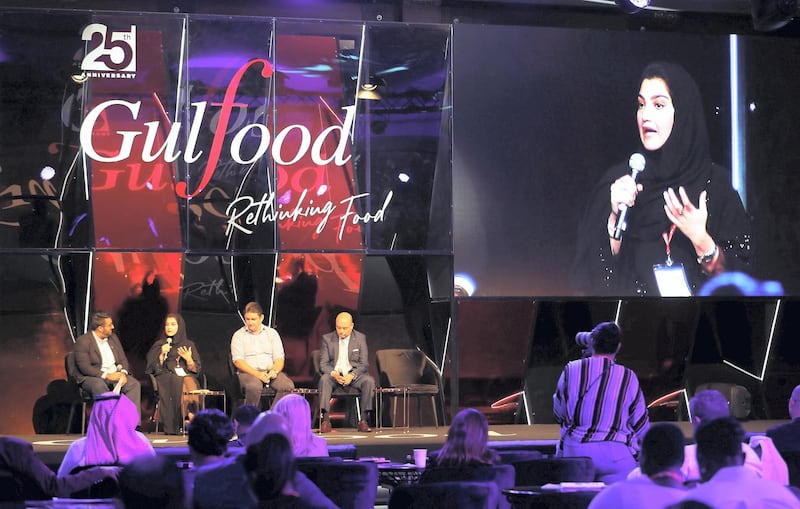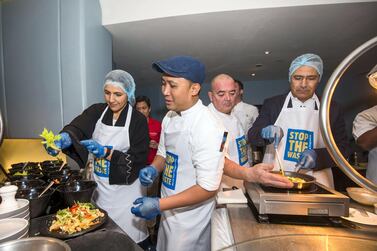UAE residents will need to become accustomed to the idea of food running out at supermarkets and change their attitudes towards expiry dates if the country is to reduce food waste, experts said yesterday.
The country has set a target of slashing food waste by half over the next decade but, to achieve that, a complete change of mindset is needed from consumers, restaurants and government bodies.
Food waste costs the UAE Dh13 billion annually, while an average resident in the country wastes 197kg of food every year.
Tjalling van den Burger, business development manager at Winnow, a company developing artificial intelligence technology to help cut food waste, said commercial kitchens are among the biggest offenders.
"If you look at the amount of food that is wasted in commercial kitchens, it goes up to 20 per cent of the food," he said.
"A culture change needs to take place. The UAE is famous for its lavish hospitality but that is quite unsustainable at the moment.”
Winnow has partnered with the Ministry of Climate Change and Environment to install their systems in hotels across the country. The system logs the type of food thrown away so hotels can adjust quantities and reduce waste going forward.
Mr Burger said chefs have begun to lead the fight against food waste after seeing their hard work thrown in the bin by the end of the day.
"The biggest challenge is convincing the people actually paying for a solution."
He suggested hotels make small changes, such as making food fresh for each order instead of cooking in bulk for a buffet.
”The hospitality industry is one of the major contributors to food waste in the UAE,” Amal Al Ahmadi, senior analyst in the agriculture development and health sector at the Ministry of Climate Change and Environment, told The National.
The ministry and Winnow aim to save three million meals from being thrown away this year — up from two million saved last year.
Ms Al Ahmadi said hotels should source ingredients locally and avoid huge buffets in their efforts to reduce waste.
“Retail outlets, such as groceries and supermarkets, also generate food waste, and could donate food that is about to expire,” she said.
“We are trying to move away from simply issuing new legislation and policies. Before we do that, we must create awareness.”
The Ministry is currently working on a Food Waste Book that will require hotel chefs across the country contribute recipes that reuse food that would otherwise be wasted — encouraging the use of near-expired food.
The Ministry has also hosted food waste gala dinners that served upcycled dishes prepared from leftovers to show that it is possible to avoid wasting meals.
“The month of Ramadan — traditionally a time when a lot of food gets wasted — is fast approaching. So far, we have targeted the major players, but it’s time to move on to other contributors, including individuals,” she said.
“Households need to be more resource-efficient. In this context, we encourage people to compost, and to be mindful of the resources that have gone into producing food before they throw it away.”
Mr Burger said people also needed to become accustomed to walking into a supermarket and seeing that something is sold out.
"We are so used to being able to get everything that we want that once we go through a mindset change, we can tackle the problem," he said.
Offering a reduced portion to customers may also help curb food waste at restaurants, said Mohamed Karam, senior business development manager at Emerson Commercial and Residential Solutions Middle East and Africa.
"They can introduce options such as takeaway or reduced portion sizes," Mr Karam said at Gulfood, an annual food industry exhibition in Dubai, on Wednesday.
He said the UAE could also adopt policies such as asking retailers to slash prices an hour before closing for the day, to encourage people to buy products before they expire — a common policy in many countries across the world.








